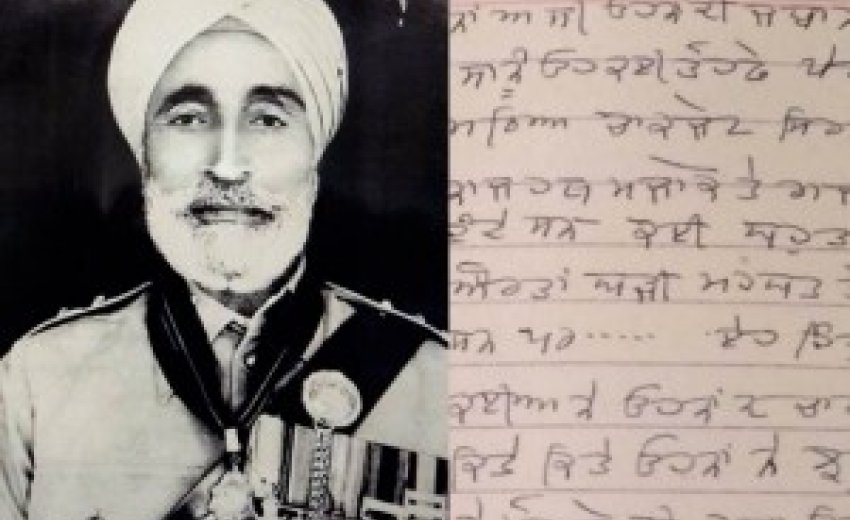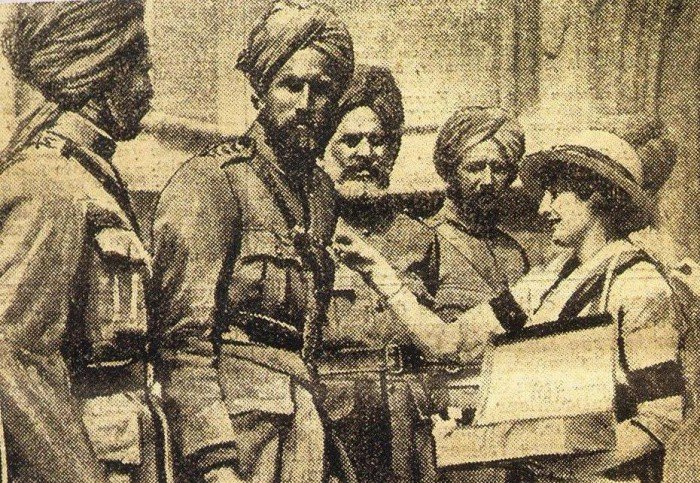
Vive la Différence
Tue, Aug 30, 2016: With the banning of the burkini in France, and the arrest of a Muslim women on a beach in southern France, we remember a very different time a century ago when turbaned Hindus, Muslims and Sikhs landed at Marseilles in order to stem the tide of the German advance and save their Gallic hosts.
These 'stalwarts from the east', as they were described, were universally welcomed as saviours. Their arrival led to encounters with the natives in a two-way journey of mutual discovery, rapport and respect. One such soldier was Harnam Singh a man of war and of letters whose story we uncover in his own words this week.
Harnam Singh: Memoirs of a Sikh at War
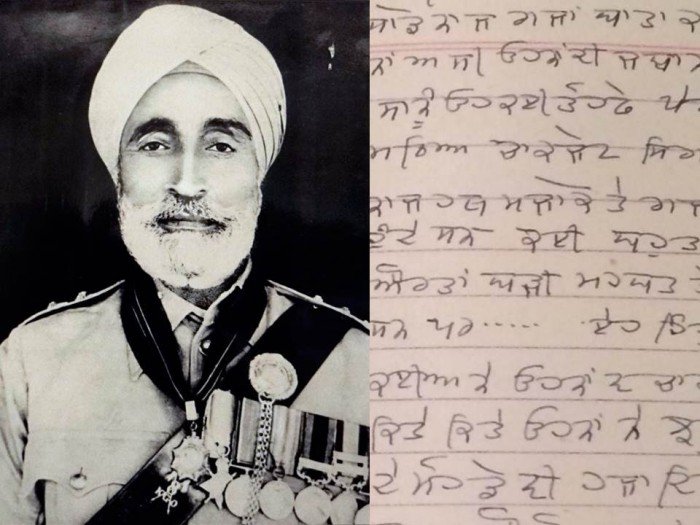
Harnam Singh was a Risaldar in the 30th Lancers (Gordon's Horse) who was born in the village of Rasulpur in the district of Amritsar, East Punjab. He saw action in France and Mesopotamia and survived to write his memoirs in the 1950s. His life has been researched by his grandson, Citizen Historian Raghbir Singh Bath.
Harnam Singh's career actually spanned both world wars. He served with distinction and was also his squadron's authorised writer in WW1. But it is his own personal recollections, written in Gurmukhi script, of his experiences in Europe in particular in which he captures revealing anecdotes about his encounters with the French people which strike a chord today.
He writes touchingly about the warmth of the French welcome, the gifts the Indian troops were offered and the amusing confusion over the Sikh beard by well-meaning but ignorant locals which revealed the compassion and kindness offered to the dark-skinned warriors from the east. Check his story and the previously unpublished excerpts from his memoirs here.
The Sikh Roll of Honour: 100 Years Ago This Week
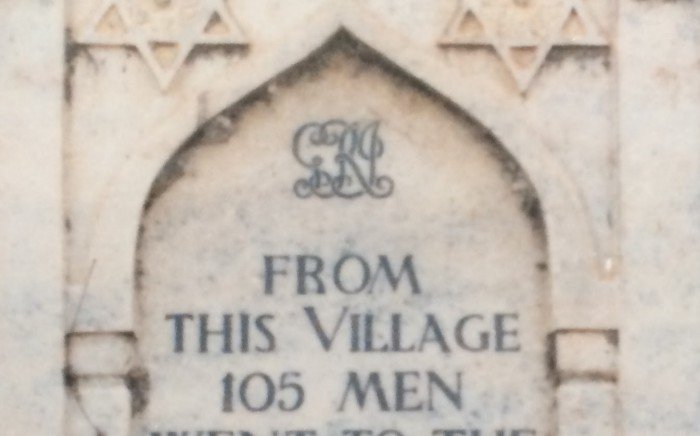
This week's roll of honour of those who died exactly 100 years ago includes men from across Punjab. They served in the ranks from humble Sepoys to Sowars, Havildars and Lance Naiks, and in as diverse units as the Bhopal Infantry and the Burma Military Police. They lost their lives far from the Punjabi villages that raised them, in lands unknown to them, in France, in Iraq and in Kenya.
But who were these men? What is their story? Help us find out by becoming a Citizen Historian and following our step-by-step getting started guide on how to research a WW1 Sikh soldier.
Do you have a personal link to any of them? Check the list below - do you recognise your village? If yes, then could it be that the soldier is connected to you, even possibly your WW1 ancestor?
Click on a name below and you'll be taken to their Soldier Record where, to the bottom-right, you'll see the 'Adopt Soldier' button - click on this to begin your journey as a Citizen Historian, helping to create a lasting memorial and legacy to the fallen.
Sikh Roll of Honour week commencing Monday 22 August:
Monday, 29 August 2016- Santa Singh • born in the village of Kokri Hiranwali, Moga, Ferozepore • Rifleman in the Burma Military Police • died in Iraq
- Kartar Singh • born in the village of Kandola, Jalandhar • Sepoy in the 29th Punjabis • died in Kenya
Wednesday, 31 August 2016
- Dharam Singh • born in the village of Naglan, Kalan, Rai, Rohtak • Sowar in the 20th Deccan Horse • died in France
Thursday, 01 September 2016
- Labh Singh • born in the village of Maugha, Hoshiarpur • Sepoy in the 29th Punjabis • died in Kenya
Friday, 02 September 2016
- Rattan Singh • born in the village of Chakohi, Samrala, Ludhiana • Havildar in the 9th Bhopal Infantry • died in Iraq
- Rup Singh • born in the village of Masaur, Bilaspur • Sepoy in the 57th Wilde's Rifles (Frontier Force) • died in Kenya
Saturday, 03 September 2016
- Gurdit Singh • born in the village of Bhaini, Dhanaula, Nabha • Lance Naik in the Jind Infantry • died in Kenya
- Atma Singh • born in the village of Jhaloor, Dhuri, Patiala • Sepoy in the Jind Infantry • died in Kenya
- Punnan Singh • born in the village of Kular, Nakodar, Jalandhar • Sepoy in the 51st Sikhs (Frontier Force) • died in Iraq
The Sikhs of World War One - With Your Help They WILL Be Remembered
The Great ANZAC Bake-Off: Classic Wartime Recipe Gives Kids Taste of Soldier's Diet

During WW1 soldiers' families would send food parcels to their loved ones serving on the front line. As traditional ingredients like eggs and flour were hard to come by, popular recipes were reinvented using readily available ingredients. One such recipe for oat biscuits was originally made to send to ANZACS (Australian and New Zealand Army Corps) serving in Gallipoli, Turkey.
Check out our Kids Activities section to learn how to make your own Anzac Biscuits - a tasty treat for you and your little ones during the summer hols or at anytime!
Media Roundup
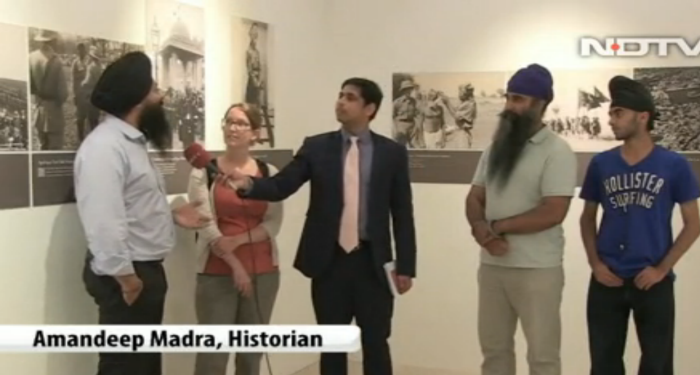
Our 'In the News' television highlights include reports from one of India's most prominent news channels NDTV. Check out Rahul Joglekar's piece on the EFW exhibition in the company of some of the team and volunteers behind it’s making to discover more about the largely forgotten contribution and experiences of Sikh soldiers here.
And don't forget to keep up to date with our regular updates and your chance to join in the conversation on Facebook & Twitter.
Till next time
The EFW Team
The Sikhs of World War One: With Your Help They Will Be Remembered.
Picture Credits:
1. Detail from a wartime French postcard captioned 'Des fleurs pour les officiers Indiens' (Source: UKPHA Archive).
2. Composite: (left) Risaldar Harnam Singh; (right) detail from Harnam Singh's memoirs (Source for both: Raghbir Singh Bath).
3. Detail from the memorial plaque in the village of Narangwal (Image credit: Baljinder Singh).
4. Anzac biscuits (Image credit: Inderjit Kaur)
5. Rahul Joglekar interviewing members of the EFW team and exhibition audience (Source: NDTV)

